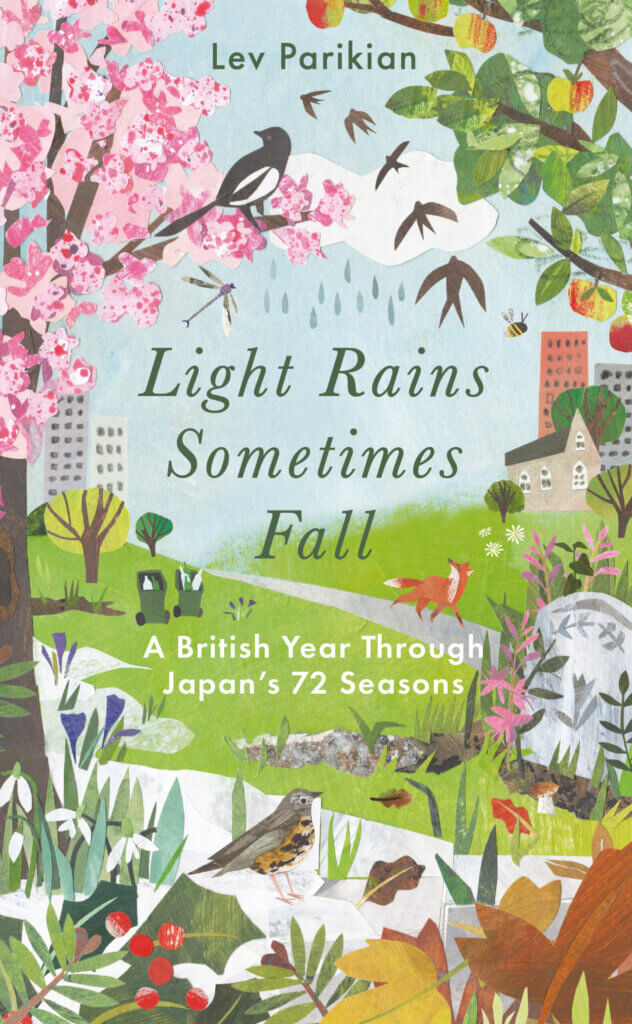
In Japan they have 72 seasons we learn – each of 5-6 days – which is quite a thing to find out. Japan has four main seasons, each divided into six subsections, and each of those has three parts. That’s fascinating, and forms the framework into which Lev Parikian plugs his light-hearted but accurate observations of wildlife in his local urban surroundings during a time of lockdown.
I liked his season for 1-4 January of ‘Christmas Trees are Released into the Wild’ very much, although after 12th Night would perhaps be a better location for it.
I did wonder whether the author would make a stab at the right number of seasons for the UK, based on wildlife, but he didn’t, so we can all play that game. And we can use the whole of the UK for our basis of selection rather than the author’s neighbourhood. I think harvests of various sorts would dominate my ‘autumn’, with blackberry, mushroom and sloe picking, the opening of various shooting seasons and harvesting of main crops. End of Cuckoo song would occur in July and butterflies could provide a few nailed down seasons. First snowdrops, primroses and bluebells are all culturally significant moments in the year. But that’s another interesting book to come, perhaps.
The cover by paper-cut artist Clover Robin is entirely serviceable. I appreciated it more after reading the book than it grabbed me at first – 6/10.
Light Rains Sometimes Fall: a British year through Japan’s 72 seasons by Lev Parikian is published by Elliot and Thompson.
Also reviewed here are Lev Parikian’s two earlier books, Why do birds suddenly disappear? reviewed September 2018 and Into the Tangled Bank: in which our author ventures outdoors to consider the British in nature reviewed June 2020.
[registration_form]
I enjoy following Lev Parikian on Twitter, he writes well with insight and humour.
This also sparked a memory of a visit to the Proms in Sept 1958 to hear Beethoven’s violin concerto, conducted by Sir Malcolm Sargent with the soloist Manoug Parikian. A strong lineage, Lev’s father. I believe Lev is a conductor as well as a writer.
Nicely chosen Mark! As one who has spent quite a lot of time in Japan, I’m looking forward to reading what Lev has to say about his discoveries among that nation’s seasonal subtleties.
Shows our disconnection from nature, that we only think of four crude seasons, not lots more. Believe the ‘First Australians’ traditionally have lots more seasons than just wet & dry, due to their close connection to nature.
Are there enough wild creatures, and wild processes still operating, in the UK for some of the more knowledgeable amongst us to try to put together a suggested set of more detailed seasons? I’d love to see that, and might be a great way to get people more engaged with nature in Britain.
Twelfth Night may be the traditional date for getting rid of the Christmas tree but round here people start putting them out from Boxing Day onwards and I’d guess it is a minority that stay the course until 12th night. On the other hand it appears that many people put up their tree and lights at the beginning of December so they are probably getting a bit sick of it by the time Christmas actually happens!